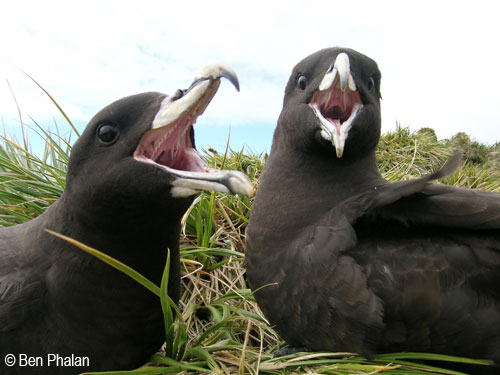Dominic Rollinson and colleagues at the Percy FitzPatrick Institute of African Ornithology, University of Cape Town, South Africa have published in the journal Polar Biology on diving behaviour of the White-chinned Petrel Procellaria aequinoctialis.
The paper’s abstract follows:
“The white-chinned petrel (Procellaria aequinoctialis) is the seabird species most commonly killed by Southern Hemisphere longline fisheries. Despite the importance of diving ability for mitigating longline bycatch, little is known of this species’ diving behaviour. We obtained data from temperature–depth recorders from nine white-chinned petrels breeding on Marion Island, southwestern Indian Ocean, during the late incubation and chick-rearing period. Maximum dive depth (16 m) was slightly deeper than the previous estimate (13 m), but varied considerably among individuals (range 2–16 m). Males dived deeper than females, and birds feeding chicks dived deeper than incubating birds, but dive rate did not differ between the sexes. Time of day had no significant effect on dive depth or rate. Our findings will help to improve the design and performance of mitigation measures aimed at reducing seabird bycatch in longline fisheries, such as the calculation of minimum line sink rates and optimum aerial coverage of bird-scaring line.”

White-chinned Petrels, photograph by Ben Phalan
Reference:
Rollinson, D.P., Dilley, B.J. & Ryan, P.G. 2014. Diving behaviour of white-chinned petrels and its relevance for mitigating longline bycatch. Polar Biology DOI 10.1007/s00300-014-1521-y.
John Cooper, ACAP Information Officer, 19 June 2014

 English
English  Français
Français  Español
Español